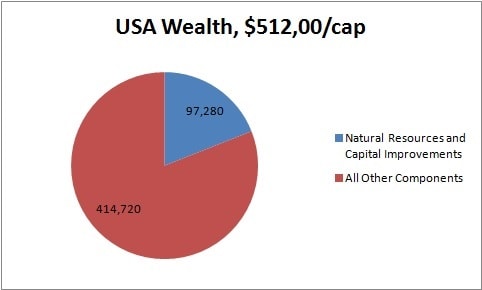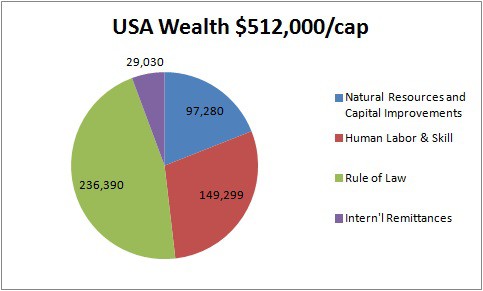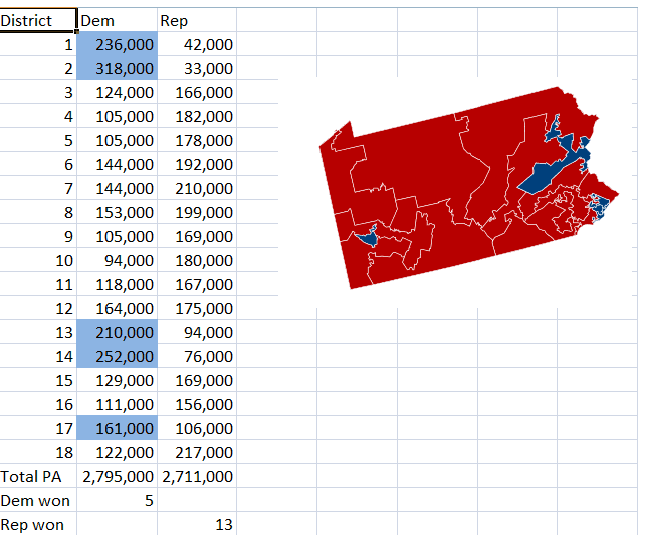The Economic Value of Civilization
Since capitalists value everything by the dollar, let’s look at society and civilization in that manner.
Small Businessman Example
From a BBC article on Trump’s Hispanic voter “Doomsday,” Mr. De La Fuente says, “In my business 30% is owned by the United States government and 10% is owned by the state of California. I didn’t pick them as partners, but they sure know how to mess in my business.”
That’s a sentiment often uttered. Is that an accurate and fair statement?
Components of Wealth
Economists in the World Bank have collected economic data from countries around the world. The data is not precise, but it gives a relative significance to the components of wealth. In the United States, the average wealth per capita is estimated at $510,000. Approximately $100,000 comes from natural resources and the capital improvements its citizens have made.

The other components of wealth (over $400,00 per US citizen) arise from:
- 36% human labor (manpower and skills)
- 57% to the social capital and the rule of law (efficient judicial system, clear property rights, efficient government and institutions, political stability, regulatory quality, control of corruption)
- 7% foreign remittances

Civilization’s Value
Nearly $237,000 of the American average wealth comes from the societal institutions that support our personal endeavors. That’s 46% of the wealth.
Important social and governmental services are:
- Efficient judicial system
- Clear property rights
- Efficient government and institutions
- Political stability
- Regulatory quality
- Control of corruption
To the extent these services do not meet their goals, that is reflected in less than optimal American wealth.
Your Business, Your Government
Remember Mr. De La Fuente statement at the beginning, “In my business 30% is owned by the United States government and 10% is owned by the state of California. I didn’t pick them as partners, but they sure know how to mess in my business.”
As I showed above, nearly half of our net worth is attributable to our societal institutions that support personal endeavors. Mr. De La Fuente picked the location and environment where he built his business. He benefited by the governments that provided the nest in which he grew his business.
Taxation is the cost and measure of that governmental fabric while regulations are one form of insuring that fabric is fair and equitable.



1 thought on “The Economic Value of Civilization”